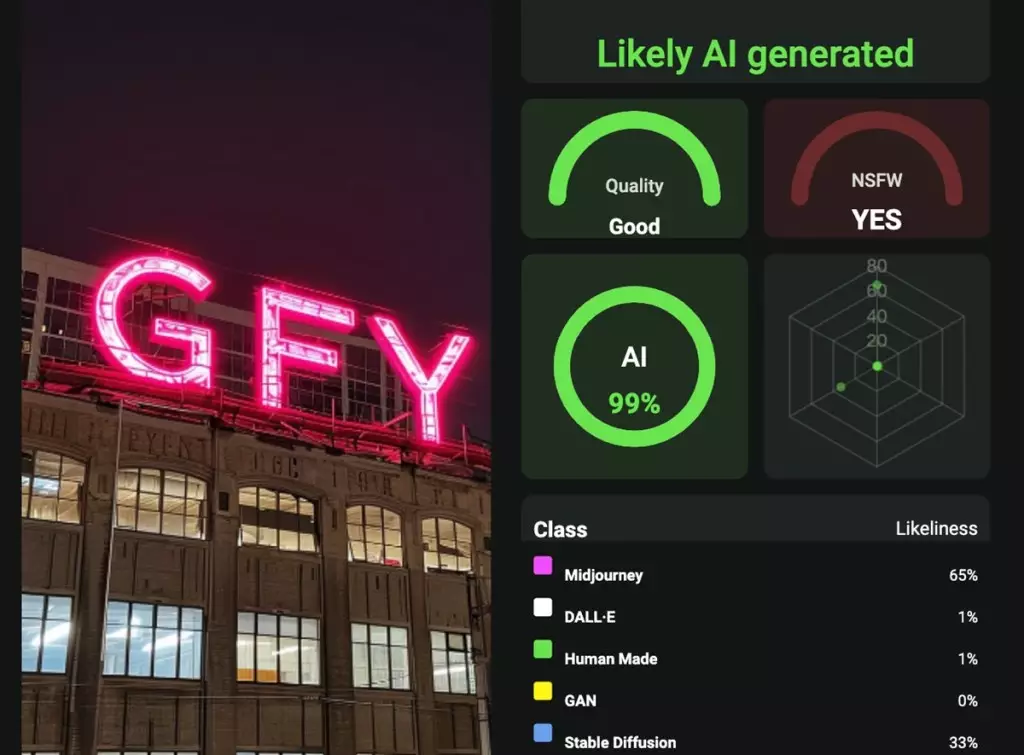In recent years, advancements in artificial intelligence have not only brought unprecedented opportunities but have also exposed vulnerabilities that threaten organizations and individuals alike. The emergence of sophisticated AI technologies, particularly in the realm of generative AI, has paved the way for a new breed of scams that exploit the nuances of digital content. This troubling trend has motivated companies like AI or Not to take urgent action, as illustrated by their recent successful seed funding round, which amassed $5 million to enhance their fraud detection capabilities. Reports indicate that an astonishing 85% of finance professionals regard AI scams as an “existential” risk, and over half have already fallen victim to deepfake technology. With predictions suggesting that generative AI scams could lead to losses exceeding $40 billion in the U.S. within the next two years, the urgency for reliable detection solutions has never been more pronounced.
Breaking New Ground with Innovative Technology
AI or Not, with its focus on leveraging artificial intelligence to combat digital deceit, exemplifies the innovative strategies necessary to address this escalating crisis. The company’s platform employs advanced algorithms designed to scrutinize and authenticate various forms of media, including images, audio, videos, and deepfakes. This dual role of AI—both as a creator of potentially harmful content and as a tool for its detection—highlights an ironic yet critical aspect of technological advancement. As noted by Zach Noorani from Foundation Capital, the ability to verify authenticity has become increasingly questionable amidst these developments. AI or Not’s unique approach is a beacon of hope, as it equips users with tools to discern trustworthy content in an age where deception can hide behind seemingly credible sources.
The rise in AI-driven scams has ignited a global demand for authenticity and transparency in digital communications. With society’s reliance on digital media for various purposes—from news consumption to financial transactions—the implications of misinformation are vast and multifaceted. The recent backlash against tech giants like Meta underscores this growing public outcry. The desire for a transparent digital ecosystem has never surpassed the need for innovative solutions like those offered by AI or Not. Their tools empower both individuals and businesses to navigate this complex landscape by providing reliable verification methods, ultimately restoring faith in online content.
According to Anatoly Kvitnisky, the CEO of AI or Not, generative AI carries tremendous potential for innovation, but it necessitates stringent safeguards against misuse. The company’s mission revolves around creating a safer digital landscape where users can confidently engage without fear of falling prey to deception. By utilizing real-time detection capabilities, AI or Not ensures that clients—from individuals to global enterprises—can proactively mitigate the risks associated with AI fraud and misinformation. This commitment to guarding against technological exploitation showcases an understanding of the fine balance between harnessing AI’s capabilities and instituting necessary precautions.
Bridging the Gap in AI Literacy
As organizations increasingly rely on AI tools, there is a pressing need for media literacy education around the capabilities and limitations of AI technologies. The feelings of uncertainty around content authenticity can foster mistrust and confusion, crippling effective communication. AI or Not is not merely competing in the fraud detection landscape; it is also playing a pivotal role in educating users about the nuances of AI-driven content. Developing a wider understanding of how deepfakes and AI-generated media operate will empower individuals to make informed decisions, thereby enhancing overall digital literacy.
AI or Not exemplifies the proactive measures necessary to combat the complicated challenges posed by generative AI. As global losses from AI scams continue to mount, the importance of innovative detection methods cannot be overstated. By securing $5 million in funding and refining their technologies, AI or Not is poised to lead the charge in this vital domain. The responsibility of fostering a safer digital environment rests not only with the companies developing these technologies but also with the broader community to push for transparency and accountability in our increasingly AI-centric world. As we stand on the brink of this digital revolution, the fight against AI-driven deception requires collective awareness and action.


Leave a Reply